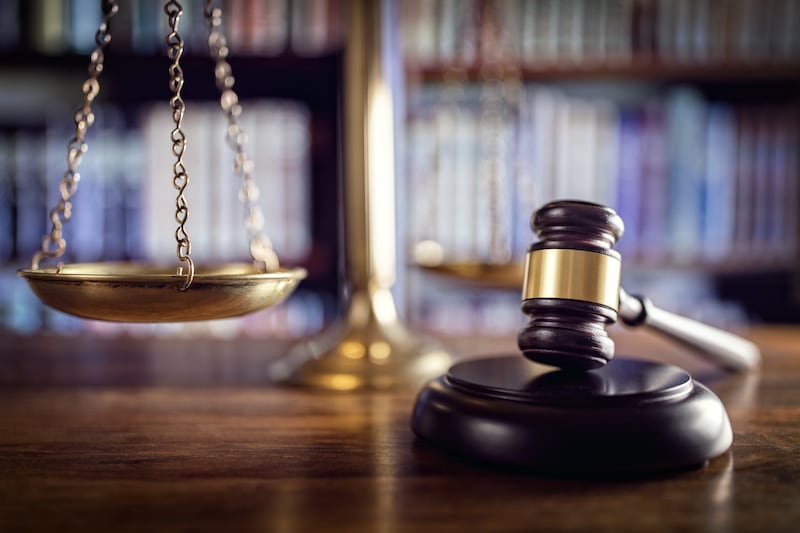SALT LAKE CITY — A jury found he was not guilty of a traffic violation in February, but a Utah man still has not recouped the $500,000 in cash troopers seized when they cited him for following another car too closely in 2016.
Kyle Savely last week got much closer to recovering the money after the Utah Supreme Court ruled in his favor. A lower Utah court had the power to order the cash be returned to him even after the federal government sought to take the money, the opinion states.
The unanimous decision surrounds a Utah law allowing police to seize property they suspect is linked to a crime, even if the owner isn't charged or convicted. The Tuesday ruling was cheered by civil liberty advocates, who say it closes a loophole that has allowed police to skirt protections in the law by handing off the property to the federal government.
"Law enforcement has been deliberately trying to avoid the requirements of Utah law in a number of cases, including this one. The clear message from the Utah Supreme Court is they better follow the law," said Savely's attorney, James Bradshaw.
Not so, said Jared Bennett, first assistant U.S. attorney for Utah. Forfeiture is the government's legal avenue to defund crime, Bennett said in a statement.
"This decision in no way suggests, much less concludes, that local law enforcement officers are using federal law to skirt state laws," he said. Bennett contends the justices simply determined that the state had jurisdiction over Savely's cash, despite ambiguity in the law, and that the federal government would need to obtain an order from the Utah court to take over power of the money.
Under a U.S. Justice Department program, local law enforcement can redeem 80 percent of money derived from the property after it is turned over to federal officers. Critics say the incentive can lead to abuses by police. But law enforcement agencies have said that forfeiture laws help fight organized crime and drug kingpins, while also helping cover costs.
The Utah Attorney General's Office and the Utah Department of Public Safety, which oversees the Highway Patrol, declined to comment on the outcome of the case.
The decision reversed a 3rd District Court decision that it did not have power to order Savely's money returned after a federal drug investigation warrant was issued for the cash. Savely has not been criminally charged in a federal drug case.
Justice Deno Himonas in the opinion noted the warrant came several months after the traffic stop. Utah's district courts can make decisions about seized property from the time police serve a notice of intent to keep the items, Himonas added.
A series of reforms in Utah have limited when and how the agencies can use the money. Connor Boyack, president of the libertarian-leaning Libertas Institute, said the ruling points to a need for even more oversight.
"This is a signal that there needs to be greater accountability for law enforcement engaging in this type of practice," Boyack said. His nonprofit has backed previous reforms, including reporting requirements on seized cash and belongings in Utah.
In 2017, Utah police took in $2.2 million in cash and property, which were placed into a state fund that parceled out grants to cover costs of training, equipment and law enforcement task forces. The agencies also received $1.1 million from federal agencies that seized property in the state, including the Drug Enforcement Administration and the Internal Revenue Service.
Civil forfeiture laws have come under scrutiny across the country in recent years, and some states have barred them altogether. North Carolina, New Mexico and Nebraska have prohibited the seizures before a conviction.
The American Civil Liberties Union of Utah agrees with that approach, said Marina Lowe, ACLU legislative and policy counsel.
"The takeaway here is that this individual was stopped and these assets were seized simply because they were assets of a large quantity," Lowe said. "There was no crime that had been committed, and that seems wrong on all accounts."
Bradshaw would not say why his client was carrying 52 bundles of cash at the time of the traffic stop, but emphasized there was no evidence that his possession of the money was illegal. He declined to make his client available for an interview and said he would soon ask again in court filings for the money to be returned.
Sen. Todd Weiler, R-Woods Cross, said he plans to bring a proposal to tweak the law in the 2019 legislative session. He believes police should not have incentives to take cash and items, especially when there's no criminal action against them.
"To say that the cops could take your money, or your car, or whatever, never charge you with a crime and never give it back, it sounds ludicrous, and most people would say 'No, you can't do that. I live in America,'" he said. "This is something that really concerns a lot of people when they understand what's happening."


